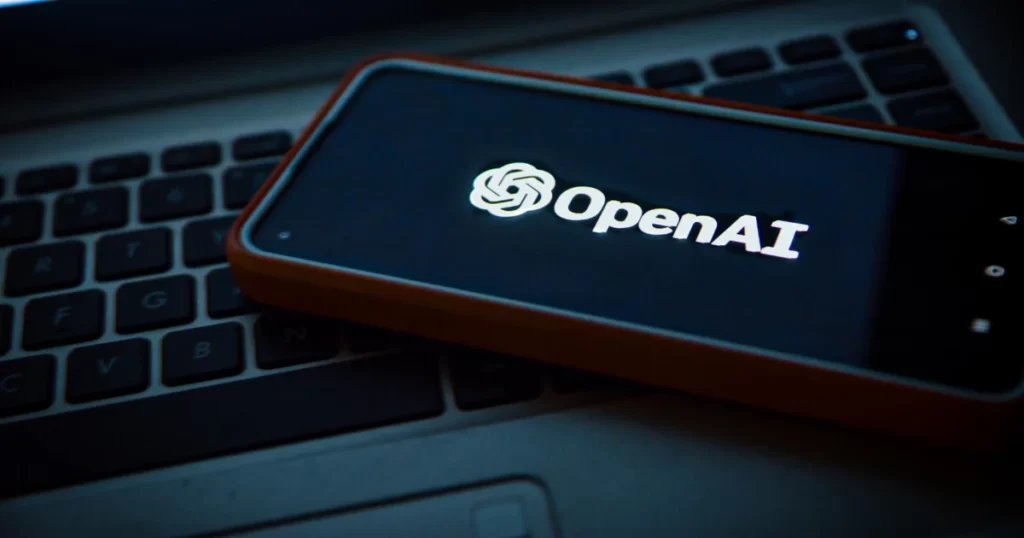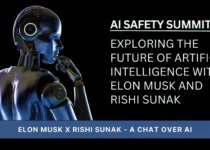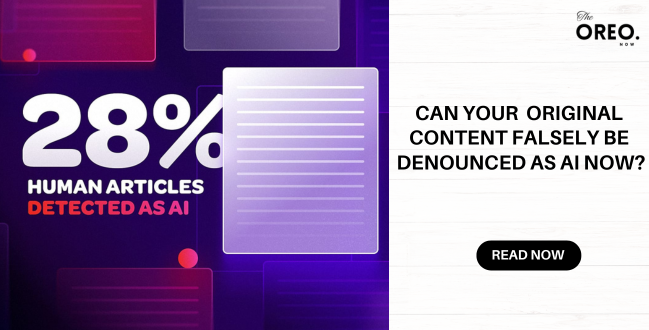Open AI – Shuts Down due to bypass AI detection tools?
OpenAI, an influential force in the realm of artificial intelligence, has made an unexpected disclosure – they will cease operations as they have identified a means to evade recognition by AI tools. This surprising development has made the AI community curious about why this decision was made and what it could mean for the future of AI technology.
OpenAI’s AI detecting tool was supposed to be a great solution for telling apart human and AI-created content. As AI models advanced in their ability to replicate human writing, the tool faced increasing obstacles in performing its intended task. The tool didn’t do a good job of finding AI-written text, so OpenAI took big action. This makes us wonder about the difficulties of keeping up with AI tricks. As the organization explores new territory, the mysterious closure makes us think about the unknown complexities and consequences of undetectable AI content.
The AI community is really excited and anxious to see what OpenAI will do next to fight against undetectable AI, especially during uncertain times. Will their ability to uncover ingenious approaches for guaranteeing transparency and accountability enable them to overcome the challenge and enhance their AI applications? Or does the closure leave people unsure about the future of AI detection technology?
We can only wait and see what OpenAI’s decision means, but it will be an exciting journey to understand how to responsibly develop AI. bypass ai detection tool Does undetectable AI really work?
Discontinuation of the AI Classifier
As of July 20th, OpenAI revealed its decision to stop using its AI classifier. They made this announcement through a blog post update. OpenAI faced a big challenge in making this decision because we are dedicated to giving reliable and excellent AI solutions. The company understood that the tool has some weaknesses and they appreciate feedback from users.
Their unwavering commitment lies in constantly exploring research methods for enhanced solutions. OpenAI is dedicated to improving and making its AI tools better for users.
OpenAI’s decision to discontinue its AI classifier due to low accuracy has spurred discussions on how to bypass AI content detection. The tool, originally intended to distinguish between human and AI-generated text, faced challenges as AI models advanced and produced content similar to human writing styles. Despite this setback, OpenAI remains steadfast in its commitment to refining AI tools and exploring new avenues for detecting AI-generated audio and visual content.

Image credit- Levart_Photographer
Does shutting down AI-detecting tools lead to the shutdown of AI?
Ceasing the operation of an AI detection tool may have significant implications for OpenAI’s overall functioning. These AI detectors are very important for making sure AI applications are open and accountable. In the event that OpenAI discontinues the tool’s usage, distinguishing between content created by a human or by AI may pose difficulties for them.
This could result in the spread of misleading or dangerous content produced by AI. Doubts and loss of trust toward OpenAI’s AI applications may arise subsequently. This could also bring up worries about using AI technology in a responsible and ethical manner.
In addition, if an AI detecting tool is stopped, it could slow down OpenAI’s work in AI research and development. These tools are highly significant in fostering responsible advancements in AI by ensuring the easy differentiation and comprehension of AI systems and human-made content.
If OpenAI doesn’t have strong ways to detect AI problems, people may question if they are really dedicated to using AI responsibly. Basically, choosing to stop using the AI detecting tool has a lot of consequences for OpenAI. Their openness, accountability, and ethical values in AI technology are compromised by this influence.
Does undetectable AI really work?
Below are some potential factors contributing to the tool’s failure:
- Advancing AI models: AI language models determinedly make strides and better reflect human composing styles, making area more challenging.
- Complex dialect and context: Understanding normal dialect subtleties can be troublesome, in fact for individuals, posing challenges for correct AI disclosure.
- Limited training data: Precision depends on arranged planning data, and deficient datasets may lead to off-base classifications.
- Uncertainty in AI yield: A few AI-generated substances closely takes after human composing, making correct judgments troublesome.
- Deceptive AI methods: Adversarial AI models point to dupe area systems, contributing to the tool’s disillusionment.
- Resource limitations: Making a solid AI discovery instrument requires basic assets and diligent improvement. OpenAI’s commitment to keeping up thing insight is clear inside the choice to close down the apparatus.
Evolving AI technology
As users wonder about an AI detection remover or a bypass AI detection tool, OpenAI recognizes the evolving nature of AI technology. The organization is dedicated to studying and developing solutions to address the issues posed by AI-generated content. With a focus on accuracy improvement, OpenAI seeks to differentiate between human-made and AI-generated content while adapting to the progress made in AI.
As they explore advanced methods, OpenAI aims to provide users with mechanisms to determine the authenticity of content, instilling trust in AI-based tools. While the specific details of these upcoming mechanisms remain undisclosed, OpenAI’s commitment to responsible AI development persists, positioning them as leaders in shaping the future of artificial intelligence.
OpenAI recognizes the importance of user feedback in refining its AI solutions. They are determined to continuously improve and make progress in the field of artificial intelligence, ensuring that AI can be harnessed ethically and responsibly. By persistently exploring research methods and embracing challenges, OpenAI remains at the forefront of shaping the future of AI technology. Their relentless pursuit of enhancing AI tools and their commitment to responsible development position them as leaders in the AI landscape.
Continuous research and development are conducted by the organization, emphasizing user feedback, to enhance the accuracy and effectiveness of its solutions. OpenAI wants to continue being a leader in creating AI technology responsibly. Their intentions are to explore fresh opportunities and ensure the future application of AI is ethical and equitable.
Also, read: Apple’s Ambitious AI Chatbot: ‘Ajax’Takes on ChatGPT and Bard




2 Comments